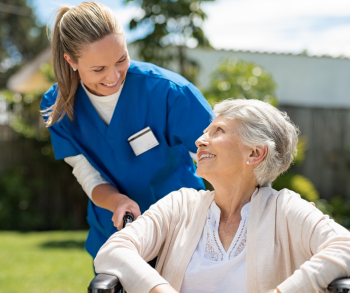The Importance of Emotional Support for Senior Recovery
October 17, 2025

When seniors face illness, surgery, or other health challenges, medical treatment is only part of the healing equation. While medications, procedures, and physical therapy address the body's needs, emotional support plays an equally important role in recovery—one that's often underestimated but scientifically proven to impact outcomes. The good news is that elder care offers the emotional support that seniors need to help them make a full recovery.
The Mind-Body Connection in Healing
Research has shown that emotional well-being directly influences physical recovery. For seniors, who may already be dealing with multiple health conditions, social isolation, or the loss of independence, emotional support becomes even more important. Studies also indicate that seniors with strong social support systems recover faster from surgery, experience less pain, and have lower rates of complications and readmission.
The stress hormone cortisol, which increases when people feel isolated or anxious, can impair immune function and slow wound healing. Conversely, positive social interactions trigger the release of oxytocin and endorphins, which reduce inflammation, boost immune response, and promote cellular repair. For seniors recovering from things like cardiac procedures, strokes, or major surgeries, this biochemical advantage can be the difference between a smooth recovery and prolonged complications.
Beyond Family
While family support is invaluable, seniors benefit from a diverse network of emotional connections. Healthcare providers who take time for meaningful conversations, elder care that offers companionship, support groups with peers facing similar challenges, and even therapy animals can all contribute to emotional well-being.
Many seniors find particular comfort in connecting with others who understand their experience firsthand. A stroke survivor sharing recovery tips, a cancer patient offering encouragement, or simply having someone who listens without judgment can provide hope and motivation that medical professionals, despite their expertise, cannot always deliver.
Practical Ways to Provide Emotional Support
Effective emotional support for seniors goes beyond visits. It involves active listening, validating their concerns, and helping them maintain dignity and autonomy during vulnerable times. Elder care understands this and strives to not only offer the support they need but also work with families to offer recommendations and help them adapt their time spent with seniors to ensure it provides them with everything they need.
Additionally, caregivers can help seniors navigate technology, which is essential when in-person visits aren't possible. Video calls with grandchildren, online communities, or even simple phone check-ins provide vital emotional connections.
The Professional Component
Healthcare teams increasingly recognize the importance of addressing emotional needs alongside physical symptoms. Social workers, chaplains, and mental health professionals trained in geriatric care can identify depression, anxiety, or grief that might complicate recovery. Caregivers trained in elder care can work with these professionals to ensure early intervention for these emotional challenges can prevent them from becoming barriers to healing.
Recovery for seniors isn't just about returning to previous physical function—it's about maintaining quality of life, dignity, and emotional well-being. Thanks to elder care and other professionals, emotional support is prioritized alongside medical treatment, and the whole person is treated, creating the optimal conditions for healing.
If you or your loved one is looking for Elder Care in San Jose, CA, please call Familiar Surroundings Home Care.
Santa Clara County: (408) 979-9990
San Mateo County: (650) 353-9777
Santa Cruz County: (831) 480-3990


